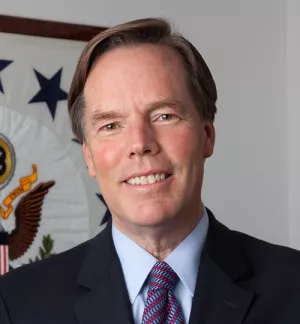Whatever you think of President Obama’s sudden decision last week to overturn his initial reluctance to intervene in Libya, the coalition has made a significant, positive difference in changing the direction of this bitter war. The US-led bombing of Moammar Khadafy’s armored units outside Benghazi and missile and radar sites around the country has stopped the Libyan government’s offensive in its tracks. Khadafy is now on the defensive. The rebels have been revived and may soon retake the initiative. This is good news for the Libyan people and for US policy in the region.
Still, Obama and the coalition have gambled in two significant ways that may come back to haunt them.
First, what is the coalition trying to achieve? Is there an agreed-upon mission?
The conflicting US descriptions of what the coalition is trying to do are troubling, to say the least. It is hard to accept the US statements over the weekend that this is a limited campaign to protect Libyan civilians. Not when Obama and Secretary of State Hillary Clinton have also been saying for the past week that Khadafy must go. These are contradictory statements. And that may mean big problems for the coalition down the road. For example, if the rebels retake the military offensive in what now looks to be a protracted conflict, will the coalition agree or decline to provide air support against Khadafy’s forces?
The United States has intervened in a civil war on behalf of one side. It will now be difficult if not impossible to detach ourselves from the rebel cause. This may complicate and limit our freedom of action as the conflict unfolds.
Nothing will be more dangerous to the effectiveness of the coalition’s cause than not agreeing on why we are all there and what we intend to do.
Second, who are the rebels? Do we have any idea of how they might govern should they topple Khadafy? Have we met more than a handful of their leaders and thus have even the most rudimentary understanding of their motives, ambitions, and collective ideology, if one exists?
Obama’s last-minute conversion to save the people of Benghazi and to deny Khadafy a complete victory is commendable. It would have been huge blow to US credibility if we did not act on the Libyan government’s barbarism.
But our intervention is also a decided, strategic gamble because we really have no idea whether a rebel-led government would be our friend or foe. Is it likely to be Islamist or moderate?
To continue reading click here
Burns, Nicholas. “The Gamble in Libya.” March 22, 2011


